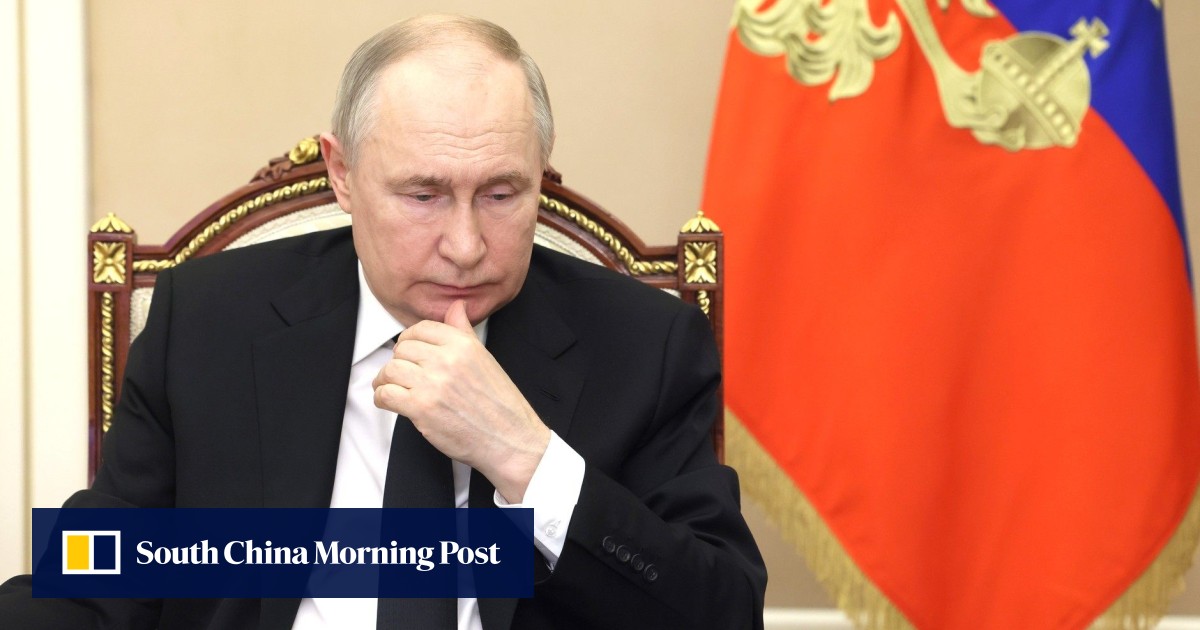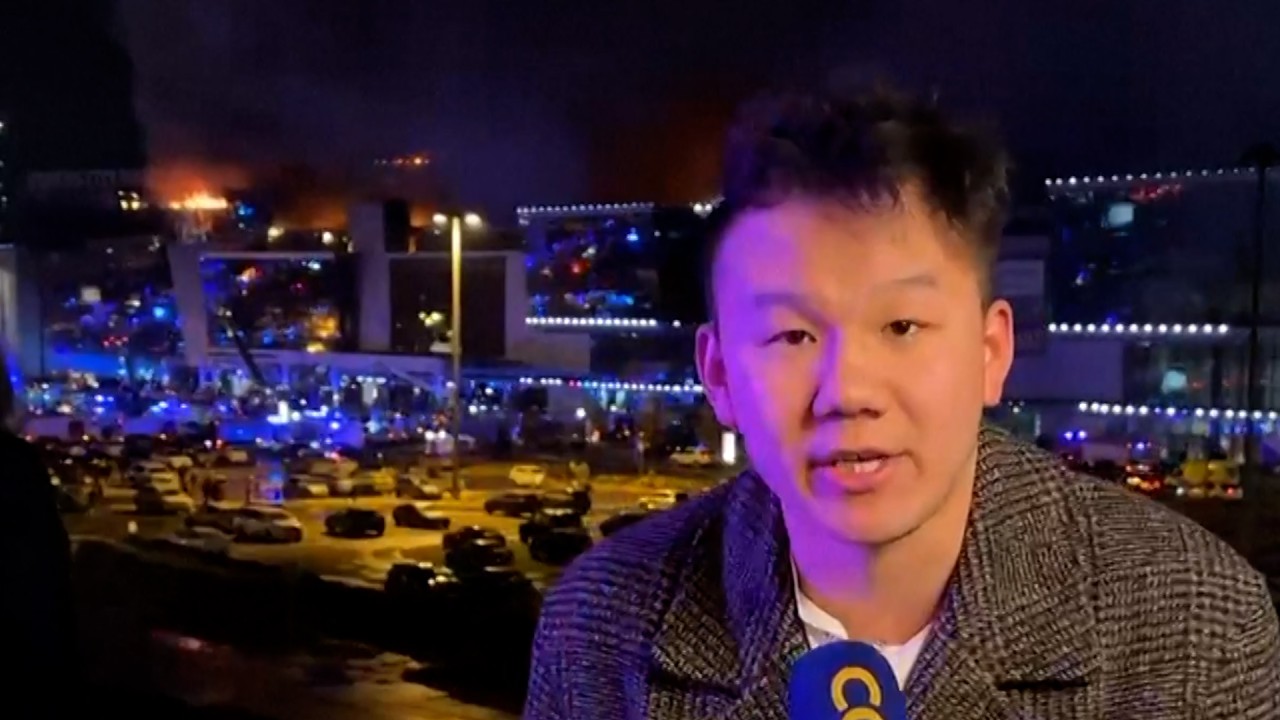French President Emmanuel Macron said France has intelligence pointing to “an IS entity” as responsible for the attack.
“We are seeing that the US, through various channels, is trying to convince its satellites and other countries of the world that, according to their intelligence, there is allegedly no Kyiv trace in the Moscow terror attack – that the bloody terrorist act was committed by followers of Islam, members of the Islamic State group,” Putin said during a meeting with top police officials.
He added that “those who support the Kyiv regime don’t want to be accomplices in terror and sponsors of terrorism, but many questions remain”.
Putin went on to declare that Ukraine has sought to deflect attention from its battlefield setbacks by waging cross-border attacks on various Russian regions, adding that “bloody intimidation acts like the Moscow terror attack look like a logical part of this chain”.
Deadly Moscow attack sparks online debate in China over tighter security net
Deadly Moscow attack sparks online debate in China over tighter security net
Putin warned that more attacks could follow, alleging possible Western involvement. He did not mention the warning about an imminent terror attacks that the US confidentially shared with Moscow two weeks before the incident. Three days before the attack, Putin denounced the March 7 US embassy notice urging Americans to avoid crowds in Moscow – including concerts – as an attempt to frighten Russians and “blackmail” the Kremlin ahead of the presidential election.
The four suspected attackers, all of them nationals of Tajikistan, were charged by a Moscow court on Sunday night with carrying out the attack and ordered to remain in custody pending official investigation.
Russian media reported that the four were tortured while being interrogated, and they showed signs of being severely beaten during their court appearance.
Russian authorities reported that seven other suspects have been detained and three of them were remanded by the court on Monday on charges of being involved in the attack.
Russian officials and lawmakers have urged a severe punishment for all those involved in the attack, and some called for the restoration of capital punishment outlawed since 1997.
Dmitry Medvedev, who was Russia’s president from 2008-12 and now serves as deputy head of Security Council chaired by Putin, called to “kill everyone involved. Everyone. Those who paid, those who sympathised, those who helped. Kill them all”.
Margarita Simonyan, head of the state-funded television channel RT, argued that even the death penalty – currently banned in Russia – would be “too easy” a punishment.
Instead, she said they should face “lifelong hard labour somewhere underground, living there too, without the opportunity to ever see light, on bread and water, with a ban on conversations and with a not very humane escort”.
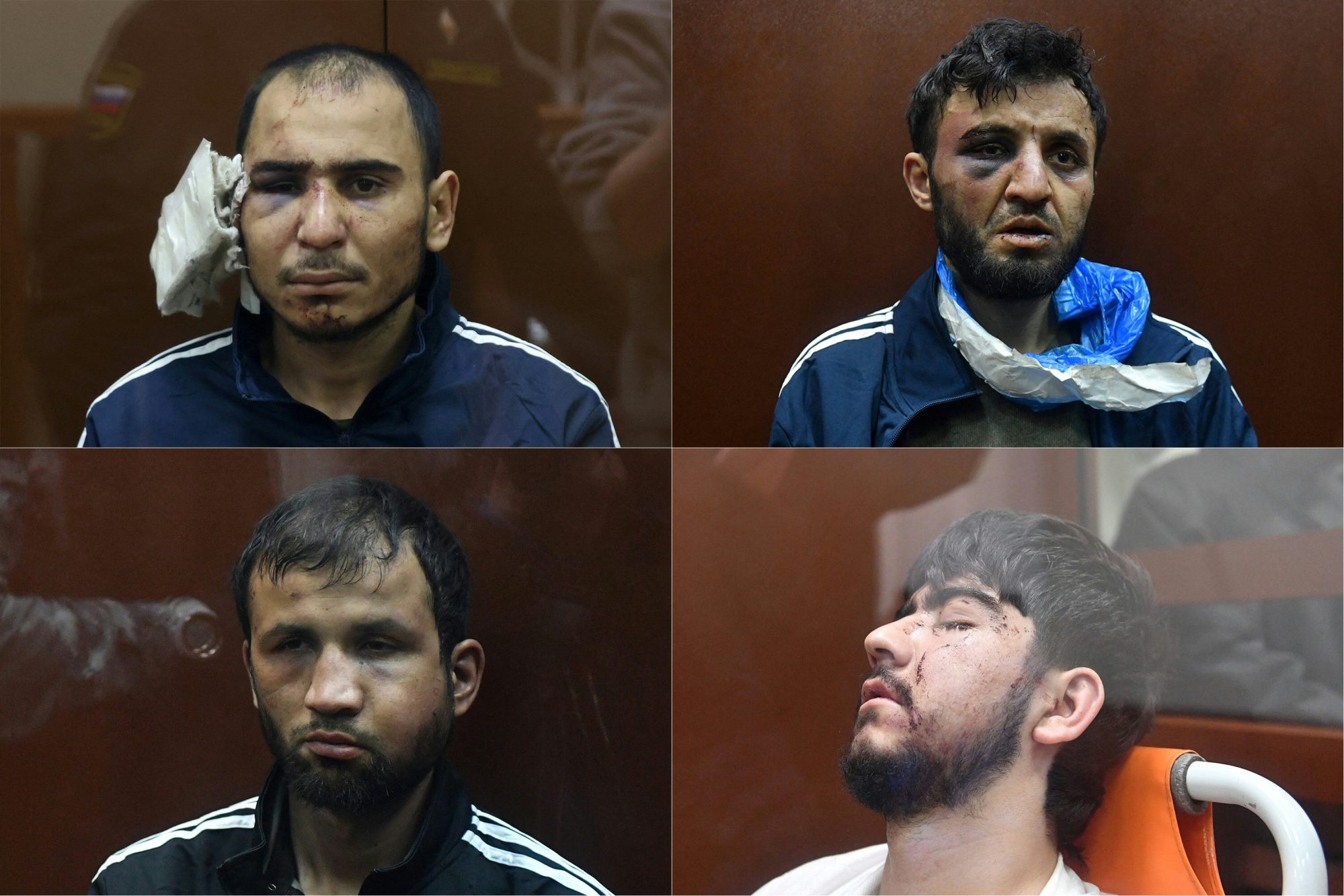
Russian human rights advocates condemned the violence against the men.
Team Against Torture, a prominent group that advocates against police brutality, said the culprits must face stern punishment, but “savagery should not be the answer to savagery”.
Net Freedoms, another Russian group that focuses on freedom of speech cases, said Medvedev’s remarks, as well as Putin’s recent call on security services to “punish traitors without a statute of limitation no matter where they are”, made against the backdrop of “demonstrative torture of the detained … effectively authorise extrajudicial killings and give instructions to security forces on how to treat enemies”.
“We’re seeing the possible beginning of the new Great Terror,” Net Freedoms said, referring to mass repressions by Soviet dictator Josef Stalin. The group foresees more police brutality against suspects in terrorist-related cases and a spike in violent crimes against migrants.
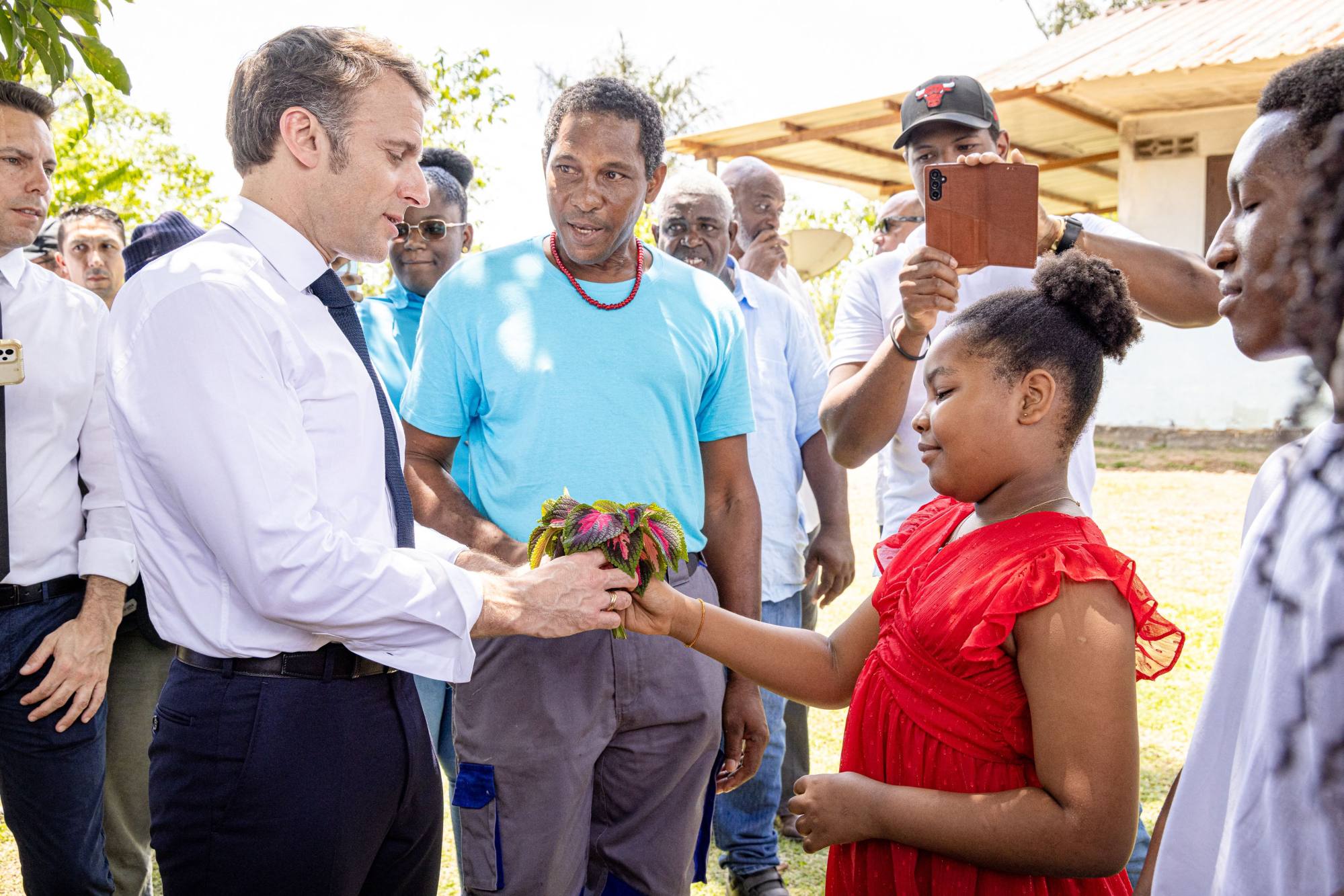
Meanwhile, the attack has raised fresh security fears for the Paris Olympics, leading France’s interior minister to promise on Monday that police and intelligence services would be “ready”.
The government upgraded the country’s terror threat level to its maximum on Sunday, with France a frequent target of Islamic State.
Macron said on Monday that the IS entity believed to be behind the killings – known as Khorasan, which is a branch in Afghanistan and Pakistan – had also sought to attack France.
“This particular group made several attempts [at attacks] on our own soil,” Macron told reporters after arriving on a trip to the French South American region of French Guiana.
France raises terror alert to highest level after Russia attack
France raises terror alert to highest level after Russia attack
“The French police, gendarmes, prefects, intelligence services, will be ready,” he said, adding that “we have a very effective intelligence system. We stop plots developing almost every month.”
The heads of intelligence services would hold a meeting on Thursday “to discuss all the conclusions of the attack on Moscow”, he added.
French Prime Minister Gabriel Attal said 4,000 extra soldiers would be deployed nationwide in the days to come.
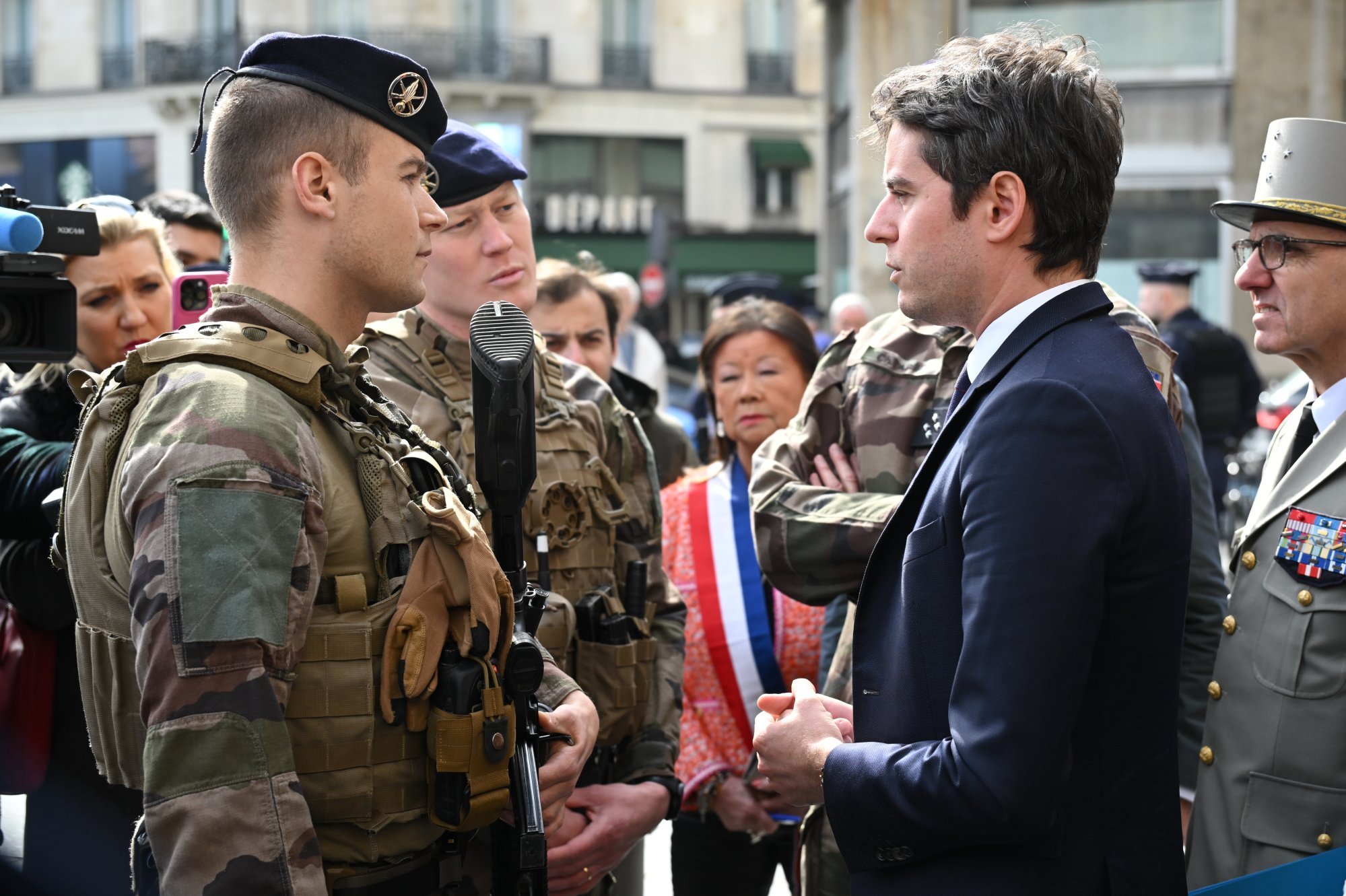
The Olympics have been attacked in the past – most infamously in 1972 in Munich and again in 1996 in Atlanta – with the thousands of athletes, huge crowds and live global television audiences making it a target.
French security forces are screening up to a million people before the Games, including athletes and people living close to key infrastructure, according to the interior ministry.
Additional reporting by Agence France-Presse


